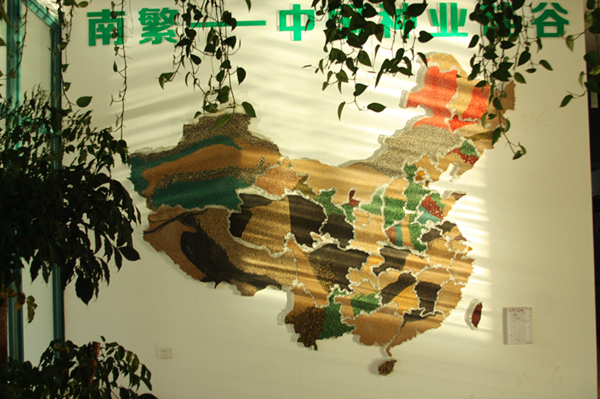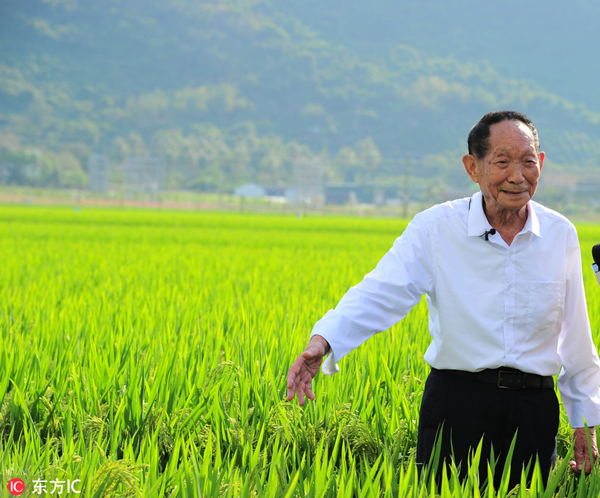
A map of China made of seeds from different crops at the Nanfan Scientific and Research Breeding Base in Sanya, South China's Hainan province, on Dec 10, 2018. [Photo provided to chinadaily.com.cn]
A map of China, made with seeds of rice, corn, wheat and other crops has caught the eyes of visitors at the Nanfan Scientific and Research Breeding Base.
Since the founding of the People's Republic of China, more than 70 percent of the nation's 7,000 new crop varieties have been bred in the base, located on the tropical island of Hainan.
The base serves as a platform for agricultural experts from all over the country to conduct research and engage in seed breeding in colder seasons from September to May.
"Sanya's tropical climate provides superior experimental conditions for agricultural scientific research. By using this platform, the breeding and promotion cycle of seed varieties can be greatly shortened," a guide at the base said.
Crop breeding cycles can be cut by one third or even halved, she said.
"It can be called the 'accelerator' of China's agricultural research."
In the past decade, 1,345 seed varieties have been approved by the National Committee for the Examination and Approval of Crop Varieties from Nanfan, accounting for 86 percent of the country's total.

Yuan Longping, known as the "father of China's hybrid rice", examines a demo field of a variety of super hybrid rice at the Nanfan Scientific and Research Breeding Base in Sanya, South China's Hainan province, on April 12, 2018. [Photo/IC]
Among the new varieties bred here are hybrid rice strains developed by well-known agricultural Yuan Longping, who is dubbed the "world father of hybrid rice".
Back in the 1970s, Yuan led his team to find three wild rice sprouts near a farm in Sanya. In subsequent years, they achieved many breakthroughs in hybrid rice research.
Yuan regards Nanfan as his "lucky place". "The success of hybrid rice varieties should be attributed to the base," he said.